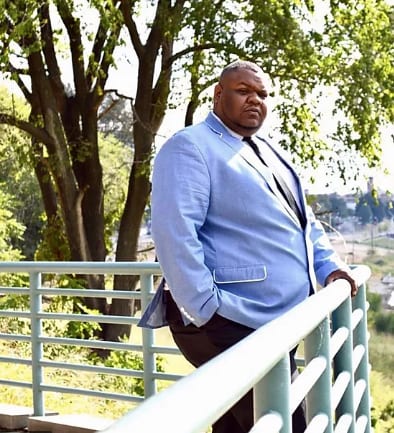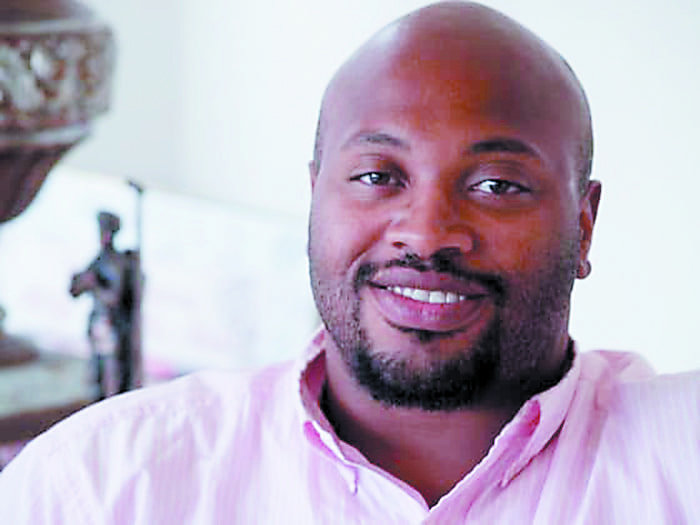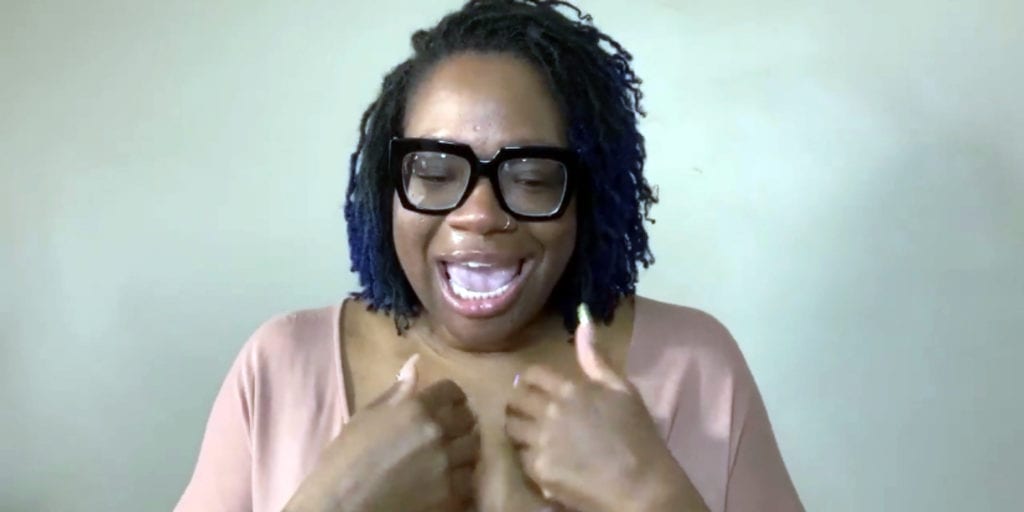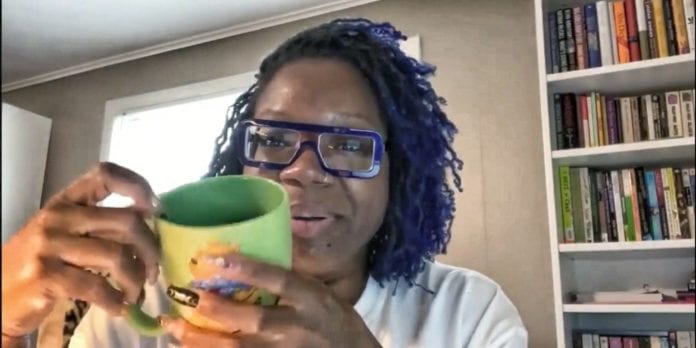“Control the controllable; in the end that’s all any of us can do.”
LáDeia Joyce embraced that guiding principle many years ago. She uses her voice and platform to speak about HIV treatment, prevention and life with that virus after learning of her diagnosis three years ago. In self-quarantine since Mid-March in response to the coronavirus, she’s had to make adjustments to her lifestyle.
For those living with HIV/AIDS during the coronavirus pandemic, it’s gotten even harder to maintain a sense of normalcy and it looks as though “normal” isn’t returning anytime soon.
According to the Centers for Disease Control, there’s not enough data to show if HIV Positive people are at more risk of contracting COVID-19. However, there is a higher risk of sickness amongst those who are not on antiviral treatment and among those with a low CD4 cell count. HIV, over time, eats away at the cells that make up the majority of the immune system, leading to AIDS.
Daily routines have been upended as strict social distancing guidelines keep people away from each other in an attempt to slow the spread of the novel coronavirus, COVID-19.
“It just has me more heightened with interactions, it has me more heightened when it comes to just viruses and colds,” said Joyce. “It’s made me become more in tune with my body because now I have a chance to listen to it without a bunch of outside noise.”
The coronavirus, which was first reported out of the Wuhan Province in China in December 2019, has spread throughout the world, slowing life down as people adjust lifestyles to shelter in place.
More than 553,000 had been infected with COVID-19 in the United States, with 21,000-plus deaths as the Easter weekend unfolded. CDC scientists and spokespeople report that African-Americans are infected – and die – disproportionally.
“It’s made me more aware of the sanitation process, being more astute…,” Joyce said. “Not to say we weren’t doing what we were supposed to do, but where we failed and got lax on, what we’re supposed to do with cleanliness.”
Amid multiple and varying government mandates ordered to slow the virus’ spread, flatten the curve, limit the number of infections seen on a regular basis, there is no cure for COVID-19.
For many, testing positive for the coronavirus can feel like a scarlet letter.
“Some people feel stigmatized if they do get diagnosed with COVID-19,” Joyce said. “Correlate those feelings and those emotions to those who’ve been diagnosed with HIV.”
“This ain’t going nowhere anytime soon”
According to CDC figures, 37,382 people were diagnosed with HIV in 2018. Of those cases, 13,312 were African Americans.

DeWayne Murrell with PAIGE Memphis does outreach to the Black LGBTQ community in Memphis. Often, his responsibility has him addressing HIV treatment options that a person he is working with may not know exists.
“Knowing the nature of COVID-19, it is a respiratory-attacking type virus, so if a person is living with one of those pre-existing conditions, which is more likely in Shelby County (really in the South), that puts them even more at risk because their immune system is more compromised,” said Murrell.
The coronavirus’ spread has funneled much of life in the US online. That could trigger a health-care consequence, said Jasper Hendricks with Nashville Cares, an HIV/AIDS outreach group based in Middle Tennessee.

“We’re afraid people may fall out of care as things move to online,” said Hendricks.
Nashville Cares has been closed since late March in compliance with Nashville’s “safer-at-home” order directing people to remain in their homes, except to get essential services, until told otherwise.
Meetings now are being held by appointment only, with home visits brought nearly to a halt. With people requested to stay indoors and six feet apart, outreach is hard to do.
Murrell feels restless, restricted to his home. Still, he doesn’t understand why others aren’t doing the same. He encourages those needing care to consider all options, including tele-health services, if they are available. He also wants more advocacy for HIV Positive people.
“Even with folks who are living with their diagnosis, they’re not empowered and the community as a whole doesn’t do a good job as stewards over their care and empowering them to get up and speak for themselves,” he said.
“Until I see some people who are positive ready to go ahead and fight and I not just stand by and support, I’ll be on the front line.”
“Change your mindset inwardly”

LáDeia Joyce knows that it’s not likely restrictions will be lifted anytime soon. She says we must embrace and tackle our everyday lives in a different way.
“I hope the world is going to be heart-centered and compassion-filled and I hope the world is going to be one that recognizes the essential people that got us through; because pre-covid-19, we didn’t value those people.”
Weeks ago she broke down – tears flowing – in front of friends as the COVID-19 pandemic intensified. Since then, she’s done her best to stay positive, regularly doing Facebook Live broadcasts and Facetiming friends and family.
“I don’t feel scared at all,” she said. “My mind says, ‘you’re prepared, not scared, but you also have to be alert and prudent with how you move.’”
She’s focusing her mind and energy and encourages other HIV Positive people to do the same during the COVID-19 pandemic.
“Even though people say we’re self-quarantining, let’s just think of it as we’re taking a sabbatical,” Joyce said. “Change your mindset inwardly.”
A byproduct of the public health emergency may be a stronger sense of community, she added.
“Let’s use our thought process and our energy to manifest good things,” Joyce said. “I just hope and pray when we come out of this, this is one of the things we continue to do.”



